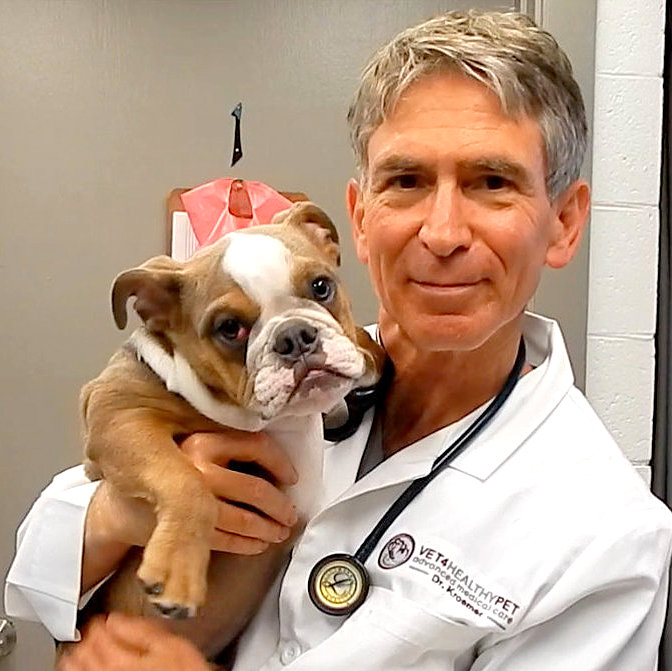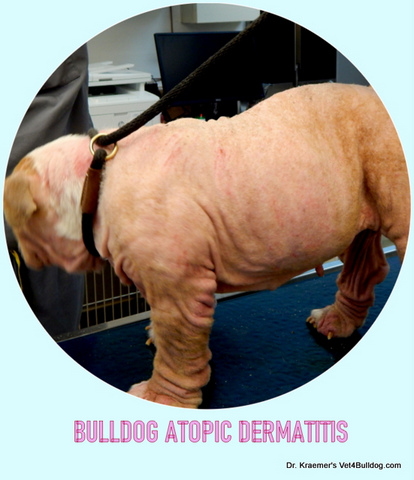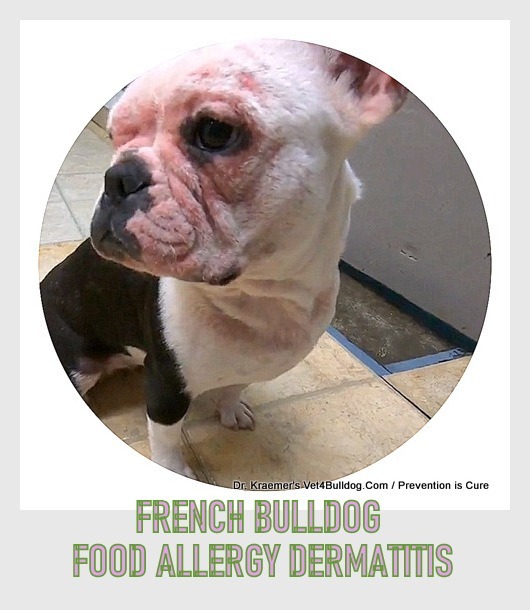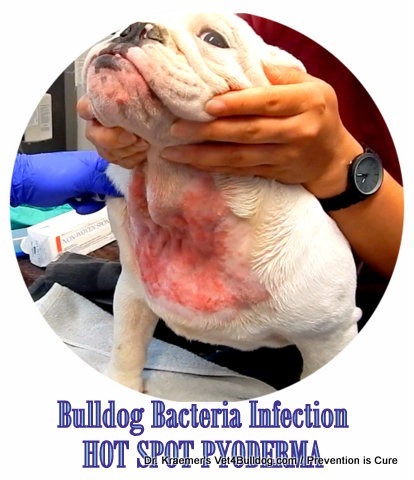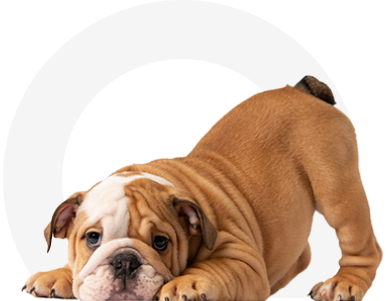Bulldog hair loss (alopecia) is one of the most common manifestations of bulldog skin disease (dermatitis). Here are some key distinctions and causes[…]
Bulldog Hair Loss Patterns
Bulldog hair loss can manifest in various patterns:
- Focal
- Symmetrical
- Multifocal
- Diffuse
- Patchy
Hair Loss Degree of Bulldog Itchness
The presence or absence of itch can provide insight into the underlying cause. The intensity of the itch, or lack thereof, is also informative.
Hair Loss In Bulldogs and Skin Texture Changes
The skin should be examined for changes associated with hair loss:
- Skin discoloration
- Greasiness or oiliness (seborrhea oleosa)
- Dryness (seborrhea sicca)
- Flakiness, dandruff, or hyperkeratinization
- Abnormal odor
- Lesions such as
- ulcers
- hot spot
- papules
- vesicles
- pustules
- draining tracts
Bulldog Hair Loss and Household Considerations
Consider environmental factors, both indoors and outdoors:
- Fleas and flea dirt
- Other pets or household members with skin problems
- Visits to parks, kennels, vets, or boarding facilities
- Additional clinical symptoms in your bulldog, such as:
- ear infections
- excessive drinking and urinating
- general illness
- inadequate diet and supplements
Most Common Skin Conditions Associated with Bulldog Hair Loss
Below are Dr. Kraemer’s 7 most common medical conditions associated with hair loss, alopecia, and baldness in bulldogs and Fr. bulldogs.
#1: HAIR LOSS DUE TO ATOPIC ALLERGY
Environmental allergies are characterized by itching and seasonality. The onset typically occurs before your bulldog reaches the age of three and the distribution can range to face, ear, groin, back legs, and paws.
Environmental allergies are likely the #1 cause of hair loss
[Learn more about bulldog atopic allergies and hair loss HERE]
#2: HAIR LOSS AND BULLDOG FOOD ALLERGY
Food allergies, although less common, can also cause hair loss and may be associated with gastrointestinal problems such as excessive gas, vomiting, and diarrhea. It is not seasonal and usually manifests later in life.
Food allergy in bulldogs and Fr. Bulldogs is not as common as you might think
[Learn more about hair loss due to food allergies HERE]
#3 HAIR LOSS DUE TO FLEA ALLERGY
Flea allergies are often seasonal (during warmer months) and more common in outdoor and multi-pet households. Bulldogs with flea allergies will be very itchy. You can often find live fleas and black, pepper-like flea dirt on your bulldog’s back and belly.
Bulldog flea allergy hair loss typically occurs near the tail base.
[Learn more about hair loss due to bulldog flea allergies HERE]
#4: FLANK ALOPECIA SEASONAL HAIR LOSS
This condition is characterized by patchy hair loss on the flanks, with dark skin discoloration, and a lack of itching. It is seasonal, usually occurring during the winter and less sunny parts of the year.
Bulldog flank alopecia is not itchy
[Learn more about hair loss due to bulldog flank alopecia HERE]
#5: HAIR LOSS DUE TO DEMODEX MITES
Demodex mites are common in bulldogs and may be linked to a genetic predisposition involving an incompetent immune system.
It is more common in puppies and usually presents as focal, patchy, and non-itchy hair loss that resolves as the immune system matures.
The adult form is usually more serious and diffuse, often accompanied by secondary bacterial and yeast infections that cause itching.
Demodox is secondary to an incompetent immune system
[Learn more about hair loss due to bulldog demodex HERE]
#6: BULLDOG HAIR LOSS DUE TO BACTERIA INFECTION
Bacterial skin infections are usually secondary to itching, damaged skin barrier, and suppressed immune system. They are often caused by Staphylococcus pseudintermedius and can present with papules, pustules, redness, and odor.
Bulldog bacteria dermatitis is a secondary
[Learn more about hair loss due to bulldog infection HERE]
#7: YEASTY BULLDOG LEADING TO HAIR LOSS
Similar to bacterial dermatitis, yeasty bulldog dermatitis is an opportunist secondary to one of the mentioned primary skin conditions.
It is an outcome of an intense itch that damages the skin barrier, an unbalanced skin microbiome, and an incompetent or suppressed immune system.
A yeasty bully usually presents with dark discoloration thickened skin, and a yeasty smell.
[Learn more about hair loss due to yeasty bully HERE]
Other Less Common Causes of Bulldog Hair Loss
- Pemphigus (autoimmune)
- Sarcoptic mange mites
- Ringworm
- Hormonal issues such as
- Cushing’s disease
- hypothyroidism
- Cancer of the skin
- Hot spot pyoderma

Recommended by Owners Approved by Bulldogs
The information provided on this platform is for general informational purposes only. It is not intended as a substitute for professional medical advice, diagnosis, or treatment. Always seek the advice of your veterinarian regarding any medical condition. It's important to always consider professional medical advice promptly and not to delay seeking it based on information you've read on this platform. Any reliance on the information provided here is entirely at your discretion.



